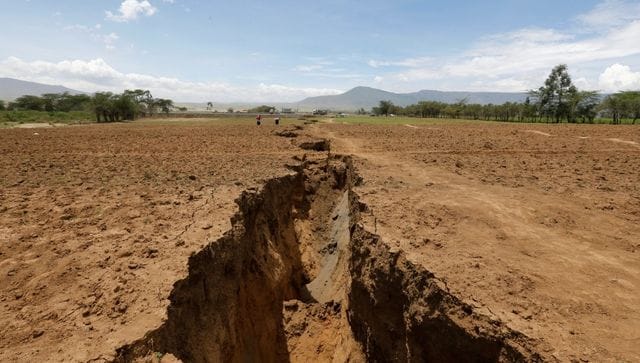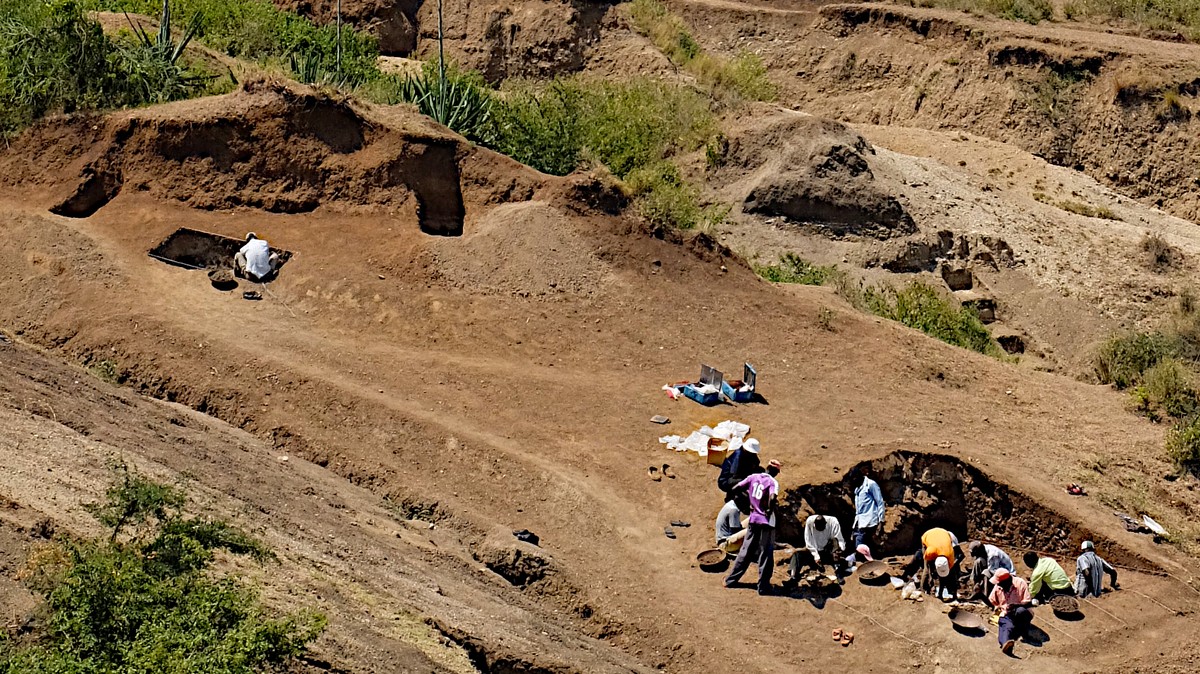
"One of the great intellectual failures of the American intelligence community, and especially the counterterrorism community, is to assume if someone hasn't attacked us, it's because he can't or because we've defeated him."
Intelligence Snippet of the Week:
Government intelligence agencies are specialized organizations that operate at the national level with the primary objective of gathering, analyzing, and disseminating information relevant to the security and interests of a country. These agencies collect and analyze information from various sources, including human intelligence (HUMINT), signals intelligence (SIGINT), and imagery intelligence (IMINT), to produce intelligence reports and assessments for government policymakers, military leaders, law enforcement agencies, and other authorized entities.
Intelligence agencies typically operate in secret and are tasked with monitoring potential threats to national security, including terrorism, espionage, and cyberattacks. They also collect information on foreign governments, their military capabilities, and economic and political conditions. This information is used by government officials to make informed decisions on matters such as defense policy, foreign relations, and law enforcement.
Intelligence agencies may also be involved in covert operations, including espionage and sabotage, to gather intelligence or disrupt foreign activities that are deemed harmful to national security. However, such activities must be authorized by the government and carried out in accordance with the law.
Examples of government intelligence agencies include the Central Intelligence Agency (CIA) in the United States, the Security Service (MI5) and the Secret Intelligence Service (MI6) in the United Kingdom, the Federal Intelligence Service (BND) in Germany, and the Federal Security Service (FSB) in Russia. These agencies typically report directly to the head of government or a designated cabinet member and operate with significant autonomy and secrecy.
Weekend Insights
Intelligence reports indicate that heavy fighting continues between Ukrainian and pro-Moscow forces in Bakhmut, resulting in hundreds of casualties on both sides. The new front line is marked by a small river, and attacks show no signs of abating. Additionally, Ukraine's foreign minister is urging Germany to speed up supplies of ammunition and begin training Ukrainian pilots on Western fighter jets. The European Union is also considering topping up the fund used for purchasing weapons for Ukraine by 3.5 billion euros. Meanwhile, a church dispute continues between Patriarch Kirill, head of the Russian Orthodox Church, and Ukrainian officials who have ordered the historically Russian-aligned wing of the church to leave a monastery complex in Kyiv.
The White House dismissed China's warning to Washington to change its "distorted" attitude or risk conflict, stating that the United States is not seeking conflict and does not see a change in U.S.-Chinese relations. The U.S. seeks strategic competition with China and aims to win the competition but wants to keep it at that level. The U.S. respects the "one-China policy" and does not want to see a change in the status quo pertaining to Taiwan, which China considers a breakaway province. The U.S. urges China not to provide military assistance to Russia in support of its war with Ukraine. U.S. officials are concerned that such aid might be forthcoming. The Chinese parliament has voted unanimously to give Xi Jinping a third five-year term as president. The vote comes as tensions continue to escalate between the U.S. and China, particularly over Taiwan. U.S. Director of National Intelligence Avril Haines has called China the "most consequential threat" to U.S. national security.
Israel is disappointed and disheartened by the recent reconciliation between Saudi Arabia and Iran after seven years of diplomatic disagreement. The agreement, which grants both countries two months to reopen their respective embassies and re-establish ties, is a symbolic blow to Israeli Prime Minister Benjamin Netanyahu, who has made the threat posed by Tehran a public diplomacy priority and personal crusade. Israel has been pushing for diplomatic isolation of Iran and threats of a unilateral military strike against Iran’s nuclear facilities. The agreement has dealt a major setback to Israel's efforts to form an anti-Iran bloc in the region and has left Israel largely alone in its pursuit. The normalization deal with Saudi Arabia, which could reshape the region and boost Israel’s standing, has become increasingly unlikely. Meanwhile, Israel is dealing with internal divisions and turmoil, including mass protests over plans to overhaul the judiciary by Netanyahu’s government.
Headlines

Russia's Navy has undergone a massive overhaul and modernization drive since the collapse of the Soviet Union in 1991 when it was forced to abandon many new ships. According to the non-profit Nuclear Threat Initiative, Russia commands one of the largest submarine fleets in the world with an estimated 58 vessels, including 11 nuclear-powered ballistic missile submarines, which it considers integral to its strategic deterrent.
Analyst Comment:
The Russian Navy has shifted its missile threat to the United States from a ballistic missile threat to a cruise missile threat. Michael Petersen, the head of the Russia Maritime Studies Institute, noted that Russia does not deploy ballistic missile submarines off the coast of the United States anymore. This is a reflection of improving technology, as Russia has developed a strategic ballistic missile force with enough range and accuracy to strike from bastions in the Barents Sea and elsewhere in the Arctic.
Russia has also developed long-endurance nuclear-powered submarines that can shoot highly accurate conventional and nuclear-tipped cruise missiles. These submarines are a significant threat to the United States as they can reach the most critical targets in the U.S. or continental Europe. The Kremlin's 2017 document on the Russian navy's improved capabilities, its evolving strategic and operational role, and its future ambitions outlines Russia's goal to possess powerful balanced fleets in all strategic areas by 2030.
The U.S. Navy is also undergoing a modernization drive and began building its largest and most advanced Columbia-class nuclear-powered ballistic missile submarine in June 2022. It has an estimated 64 submarines in its fleet, including ballistic missile submarines, guided missile submarines and attack submarines.

The United States and the Philippines have announced an expansion of their 2014 Enhanced Defense Cooperation Agreement. Instead of periodic access for U.S. forces to five Philippine installations, they will have access to nine. The U.S. Navy’s top admiral has since offered Manila a chance for joint patrols: Philippine vessels cruising side-by-side with their American allies in the face of Chinese coercion.
The agreement marked a striking reversal from Manila’s flirtation with ending most military cooperation with the U.S., as it sought to balance relations with Washington and Beijing. It capped a wave of personal diplomacy, in which Defense Secretary Lloyd Austin visited the Philippines in 2021, President Joe Biden called Marcos to congratulate him on his election and Vice President Kamala Harris visited Manila in November.
Analyst Comment:
The United States and the Philippines have expanded their 2014 Enhanced Defense Cooperation Agreement. This allows U.S. forces to access nine Philippine installations instead of five, signaling a change in Manila's previous strategy of trying to balance relations with the U.S. and China. The move is seen as a response to China's increasingly aggressive behavior in the South China Sea, where the Philippines has been a target of China's maritime coercion. The U.S. is also increasing its military presence in Australia, transforming a Marine regiment in Japan into a quick-reaction force and increasing its rotational basing for its ships and submarines in locations like Perth. These moves demonstrate a concerted effort by the U.S. to strengthen its military alliances in the Indo-Pacific region.
South Korea is planning to increase its engagement with the Quadrilateral Security Dialogue (Quad), which is composed of the United States, India, Australia, and Japan, to address China's growing influence in the region. Although China has previously expressed concerns over the Quad, its response to Seoul's plan has been relatively muted. This suggests that China is trying to avoid provoking South Korea and potentially pushing it closer to the Quad. Seoul plans to join the Quad's working groups on climate change among others, but will adopt a gradual approach to formally joining the grouping.
Australia is set to acquire a fleet of submarines powered by U.S. nuclear technology as part of the AUKUS pact. The decision has been described as the "single biggest leap in our defense capability in our history." The acquisition is expected to replace the 20-year-old Collins-class diesel-electric submarines and provide Australia with a more capable naval force. In the meantime, Australian personnel will host U.S. nuclear-powered submarines to acclimate themselves to operating and maintaining the complex submarines. The U.S. will also increase its rotations of bomber task forces and fighters in Australia while bolstering Army and Navy rotations there. Experts suggest the U.S. must invest more in military construction for resilient basing that relies less on established forward bases that are well known to enemies.
Overall, these developments suggest an increasingly complex security environment in the Indo-Pacific region. The U.S. is strengthening its military alliances and partnerships, and China is expanding its influence in the region through various means including economic coercion and military assertiveness. The Quad's expansion and Australia's acquisition of nuclear submarines highlight the increasing concern over China's behavior and its potential threat to regional security. It remains to be seen how China will respond to these developments, and whether they will push other countries closer to or further away from China's orbit.
According to state news agency KCNA, North Korea has decided to take practical measures to deter war at a meeting of the ruling party's military commission chaired by leader Kim Jong Un. As an intelligence analyst, this development suggests that North Korea is potentially taking steps to bolster its military capabilities and enhance its preparedness for potential military conflict. However, further information is needed to determine the specific nature and scope of these measures and their potential implications for regional security.
Analyst Comment:
The North Korean government's recent decision to take practical measures to deter war suggests that the nation is attempting to increase its military preparedness and capabilities. While limited details have been provided, these measures could indicate increasing preparations for armed conflict with its neighbors, particularly South Korea. This carries potentially grave risks as a miscalculation or unintended incident could lead to full-fledged conflict with massive casualties among both military and civilian populations.
It is important to note that the potential for North Korea to mistakenly fire missiles and trigger conflict with its neighbors carries grave risks. Similar scenarios, such as the accidental killing of civilians in Poland by a Ukrainian anti-air missile, have nearly resulted in global conflict. A renewed conflict in Korea would have far-reaching effects, with massive military and civilian casualties likely.
The U.S. presence in South Korea has been identified as a major provocation for North Korean aggression, and reducing or removing this presence would greatly decrease tensions between the nations. Diplomatic negotiations should focus on the de-escalation of tensions and promote dialogue between the two countries. Confidence-building measures, such as increased transparency, could also help reduce the risk of unintended incidents leading to military conflict.

Iran and Saudi Arabia signed a China-brokered agreement on Friday to restore diplomatic relations, ending a seven-year dispute.
Closed-door talks between top security officials took place in Beijing this week, leading to a Friday announcement in which Tehran and Riyadh agreed to re-open embassies within two months and to refrain from interfering in each other’s domestic affairs.
Analyst Comment:
Recent developments in the Middle East have implications for U.S. interests, with the surprise agreement between Iran and Saudi Arabia to restore diplomatic ties being a particularly valuable outcome. The presence of China as a peace broker in this region is intriguing, given their increasing global political and economic power, as highlighted by President Xi Jinping's recent five-year presidential extension. Moreover, ongoing tensions between the West and Iran have increased with stalled nuclear deal negotiations and U.S.-led shows of force - such as joint operations with Israeli F-16 fighter jets escorting a B-52 bomber through Israeli airspace over the Persian Gulf.
The agreement to restore diplomatic relations could potentially offer the United States an opportunity to engage with Iran over its nuclear program and provide stability in Yemen. However, the role of China as a mediator could raise concerns about the U.S.'s declining influence in the region. Ongoing tensions between the West and Iran have also led to joint operations between the U.S. and Israel, demonstrating a show of force towards Iran. As such, the re-engagement of Iran and Saudi Arabia in diplomatic ties should be closely monitored, and the U.S. should carefully consider how it can maintain its influence in the region.
Although there is cautious optimism among U.S. officials and the UN that Iran will honor its commitments under this agreement, it remains to be seen how reliable of a partner they would be in maintaining peaceful relations with Saudi Arabia and other Middle Eastern countries going forward. The U.S. must also be wary of Chinese influence in the region, which could weaken American standing while strengthening Beijing’s sway in global politics. It is clear that these recent events bring up an array of complex geopolitical puzzles that must be carefully navigated in order to ensure security in the Middle East and protect U.S. interests abroad.
The recent agreement could also have significant implications for Israel. On one hand, the restoration of diplomatic ties between two of Israel's regional rivals could potentially provide a more stable environment in the region. On the other hand, the role of China as a mediator in the dispute raises concerns about the U.S.'s declining influence in the region, which could undermine Israel's strategic interests. Additionally, ongoing tensions between the West and Iran have led to regular joint operations between the U.S. and Israel, demonstrating a show of force towards Iran. Israel should continue to monitor the situation closely and carefully consider its options to maintain its strategic position in the region.
Country Profile
South Africa

South Africa is a country located at the southernmost part of the African continent. It is a constitutional democracy with a presidential system of government. The country is divided into nine provinces, each governed by a premier and a provincial legislature. The government of South Africa is a multi-party system dominated by the African National Congress (ANC), which has been in power since the end of apartheid in 1994. The country has a bicameral parliament consisting of the National Assembly and the National Council of Provinces. The National Assembly is responsible for making laws, while the National Council of Provinces represents the provinces and ensures that their interests are taken into account in the national legislative process.
South Africa is the most developed economy in Africa and has a well-established financial sector. The country is rich in mineral resources, such as gold, diamonds, and platinum, and is also a major producer of coal. However, the economy has been struggling in recent years, with high levels of unemployment, inequality, and poverty. The COVID-19 pandemic has further exacerbated these challenges. South Africa has also been affected by corruption and mismanagement in state-owned enterprises, which has undermined economic growth and investment.
The South African National Defense Force (SANDF) is responsible for the defense of the country. It is comprised of the South African Army, South African Air Force, South African Navy, and the South African Military Health Service. The SANDF has been involved in peacekeeping missions in the Democratic Republic of Congo and Sudan, among other countries. The military has also been involved in domestic operations, such as border control and disaster relief.
Travel Advisory Levels for South Africa
Travelers to South Africa should exercise increased caution due to the high level of crime and civil unrest in the country. Violent crimes such as armed robbery, carjacking, mugging, and "smash-and-grab" attacks on vehicles are common. Travelers should avoid walking alone, especially after dark, and avoid visiting informal settlement areas unless accompanied by someone familiar with the area. Demonstrations, protests, and strikes occur frequently and can turn violent with little warning, disrupting traffic, transportation, and other services.
Furthermore, the government has declared a state of disaster in response to ongoing power shortages, which include load-shedding or rolling blackouts. These blackouts can cause localized power outages for up to six hours or more per day, impacting residential areas, businesses, traffic lights, internet connectivity, and fuel pumps. The outages can also increase the risk of crime, such as smash-and-grab incidents and targeting of residences when security systems are not functioning.
Travelers should prepare in advance for power outages, including contingencies for communication and water. It is recommended that travelers always carry a copy of their U.S. passport and visa (if applicable), while keeping original documents in a secure location. Water conservation is encouraged, and travelers should follow local guidance on water use for tourists.
Interesting Articles from the Weekend

Stay safe out there



